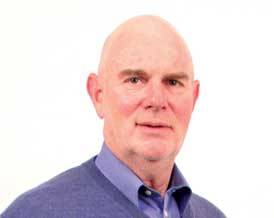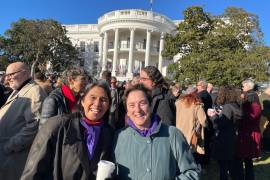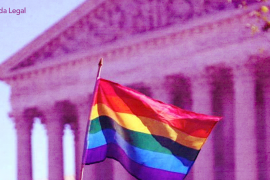
From Sex to Marriage: How We Got From Lawrence v. Texas to the Cases Against DOMA and Prop 8
Blog Search
It might be hard for some to imagine, given the rapid pace of our progress, but as recently as 10 years ago, lesbian and gay Americans in many states were considered criminals in the eyes of the law—simply for having sex with someone of the same gender.
And the discrimination went far beyond criminal law. Parents were denied custody of their children. Qualified workers were turned down from jobs. Prospective tenants were refused housing. All because of archaic and discriminatory laws that targeted and criminalized same-sex intimacy in 13 states.
But in 2003, one Supreme Court decision changed everything. After decades of fighting against sodomy laws, Lambda Legal’s historic victory in Lawrence v. Texas opened a new path toward LGBT equality. For the first time, the Court established that lesbian and gay men share the same fundamental right to private intimacy with another adult that heterosexuals have.
 I was in the Court on the day Justice Anthony Kennedy read the decision, and I still get chills when I think back to that moment. We all knew what it would mean—and that is was an enormous victory. The Court’s sweeping decision struck down not just the remaining state sodomy laws, but everything those laws had come to represent as barriers to equality for the LGBT community. It meant that laws denying lesbian and gay people liberty or equal protection could no longer be justified by moral disapproval.
I was in the Court on the day Justice Anthony Kennedy read the decision, and I still get chills when I think back to that moment. We all knew what it would mean—and that is was an enormous victory. The Court’s sweeping decision struck down not just the remaining state sodomy laws, but everything those laws had come to represent as barriers to equality for the LGBT community. It meant that laws denying lesbian and gay people liberty or equal protection could no longer be justified by moral disapproval.
On March 26—exactly 10 years to the day Lambda Legal argued Lawrence before the Supreme Court—the justices will hear another historic case: a challenge to California’s Prop 8, which revoked same-sex couples’ freedom to marry in that state. The next day, the Court will consider the constitutionality of the core section of the so-called Defense of Marriage Act, which bars the federal government from recognizing the marriages of same-sex couples.
Both cases (Hollingsworth v. Perry and U.S. v. Windsor, respectively) could usher in a new era of liberty and equality for LGBT people. Both cases are built upon the foundation of Lambda Legal’s groundbreaking work in Lawrence. In both cases, Lambda Legal has submitted friend-of-the-court briefs and is actively involved in legal analysis and preparations.
To help set the stage for the big day, Lambda Legal is launching a blog roundtable titled From Sex to Marriage: How We Got From Lawrence v. Texas to the Cases Against DOMA and Prop 8. We’ve invited attorneys and experts, current and former Lambda Legal staffers, to discuss this momentous time in our history, and explain how Lawrence paved the way for many successes on the road to LGBT equality—including what we hope will be a resounding victory in Perry and Windsor.
We’ll kick things off on Monday with attorney Mitchell Katine, who received the phone call that set the Lawrence case in motion. Our former Legal Director Ruth Harlow will explain our legal strategy on the case. Roger Poindexter, Regional Director at Lambda Legal’s Dallas office, will recall the state of the LGBT community in Texas at the time. Our former colleague Hector Vargas, who was the Regional Director of our Atlanta office back then, will tell us about Lambda Legal’s community education strategy in the South regarding sodomy laws. Former board member Paul M. Smith will share his experience arguing Lawrence before the Supreme Court. Lambda Legal’s Director of Constitutional Litigation, Susan Sommer, will discuss the ways in which Lawrence opened the door to legal victories in the fight against “Don’t Ask, Don’t Tell” and marriage equality cases in state courts. And finally, our current Legal Director, Jon W. Davidson, will explore how Lawrence got us where we are today, ready for the next landmark victory.
Our guest bloggers joined us last week for a teleconference about Lawrence and its impact on the marriage cases currently before the Court. You can listen to the teleconference or read the transcript here.
As Lambda Legal enters its fifth decade, we remain as optimistic as ever, and as committed to achieving full equality for LGBT people and those with HIV. And with your help, that’s exactly what we’ll do.




